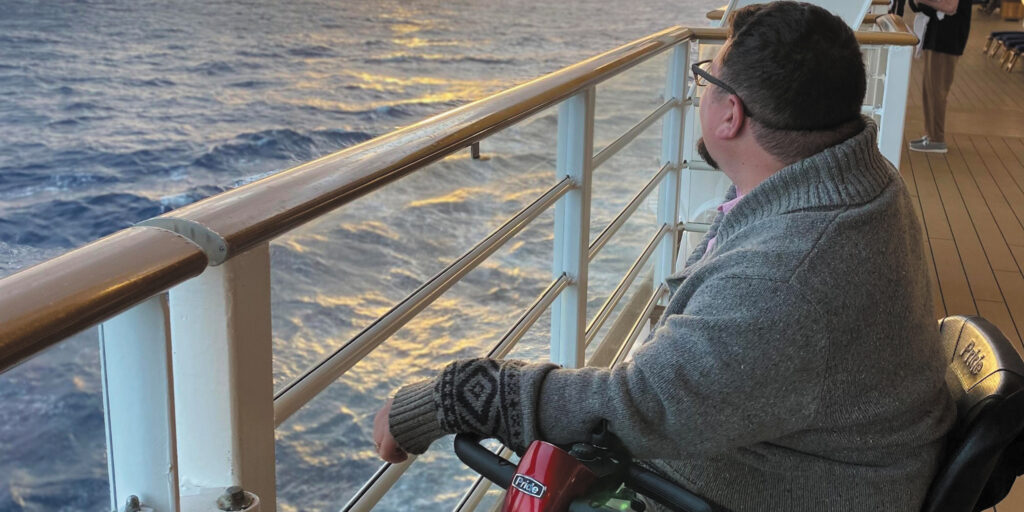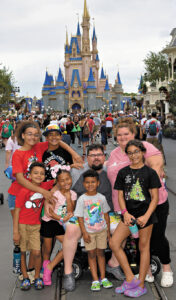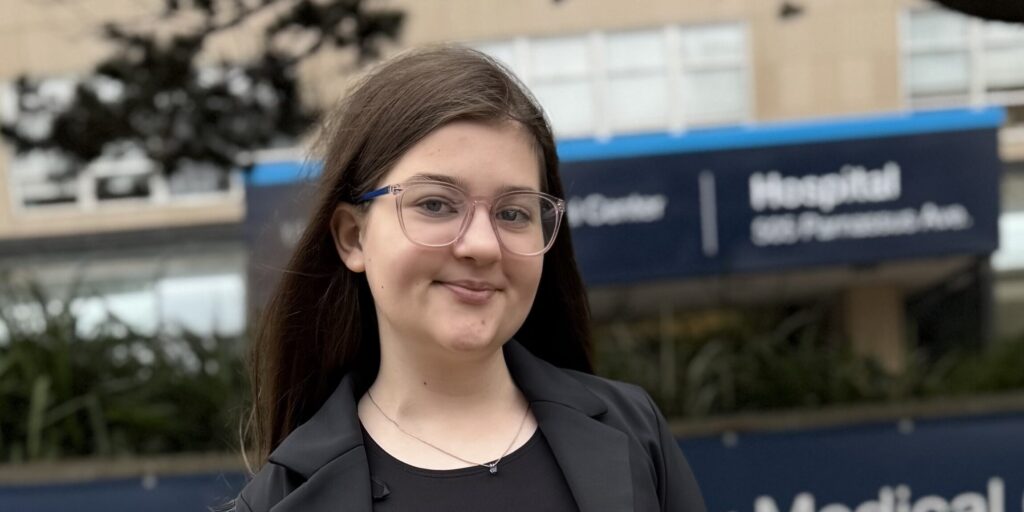
Advocating for Himself Helps Matt Curcio Serve Others
By Rebecca Hume | Friday, May 23, 2025
5 Second Summary
Quest for Success explores the different paths that individuals with neuromuscular disease have taken to reach their potential and pursue dreams. This series spotlights individuals from our community and shares their journey to independence and accomplishment.
Matt Curcio has spent his life advocating for his inclusion and accessibility needs. Now, he spends his career ensuring others with disabilities have accommodations in the workplace and when traveling. The 34-year-old father of four splits his professional time between his roles as Director of Employment Supports at a nonprofit focused on providing job opportunities for individuals with disabilities and as the co-owner of a travel agency.
Learning self-advocacy

Matt Curcio is passionate about accessible travel.
Matt, who lives with collagen VI-related dystrophy, has experienced fatigue, muscle weakness, and balance issues since childhood. He was diagnosed with general muscular dystrophy when he was 2 years old, before receiving his official diagnosis at 26. He recalls vividly his first experience with self-advocacy as a 12-year-old when his older sister insisted that he call to schedule his own appointment to be fitted for specialized shoes.
“She was determined to make me advocate for myself and really emboldened me to be independent,” Matt recalls. “It was such a simple thing, but a pivotal moment for me. It was my first time using my voice for my needs and realizing I had that ability.”
From that point on, Matt began actively seeking the support he needed. He participated in writing his Individualized Education Plan (IEP) in middle school and high school. When the middle school insisted that he have an attendant, he pushed back and asked for his friends to be permitted to leave class early to walk with him between classes. He carried a walkie-talkie to contact attendants if he needed additional assistance.
By the time he began college at Eastern University in St. Davids, Pennsylvania, Matt was using a mobility scooter full-time. The historic campus presented several barriers, including a disabilities office on the third floor of a building without an elevator.
“I really had to fight for everything,” Matt says. “But I am the type of person that if you tell me I can’t do something, I am going to show you 50 ways I can.” That included getting creative with accommodations.
He obtained an accessible dorm room intended for four students, but only assigned three, so he would have ample space for his scooter. He convinced the school to allow the common area housekeeping crew to clean his room once a week. He was also given a key to the back entrance of the dining hall, which had a ramp, because the building lacked an elevator.
Matt developed a close relationship with a professor who also used a wheelchair. “He was married with a son, had a doctorate in theology, and was a renowned author,” Matt says. “Just seeing this is possible was enough evidence to convince me that it might be possible for me as well.”
Career inclusion
After college, Matt invested his talents in roles that he considers stepping stones to where he is today. He worked for a program that created a manual to teach faith communities how to find jobs for people with disabilities, started a nonprofit that provided accessibility training, served as a Publications Director and writer for a publishing company, and spent a few years in the insurance sector before finding his niche at the Ability Network of Delaware.
Matt chose to disclose his disability when interviewing for his current role. “When to disclose can elicit a lot of anxiety. I got into a space where I was very attuned to what I was applying for, which was a position where my disability would be seen as a benefit instead of a burden,” Matt says. “I don’t want to be part of a company or mission that is going to ostracize me or be caught off guard by my disability. I am proud of who I am.”
Although his position is remote, Matt drives a modified van that can accommodate his scooter, and he travels frequently as co-owner of Beautiful Tomorrow Adventures.
Accessible travel
During his honeymoon in Disney World, Matt was impressed by the level of accessibility. Later, he realized that he could use his love of travel to serve others. He connected with his travel agent, and they eventually opened their own agency, where Matt specializes in accessible travel for people with disabilities.
“My first step is to understand their needs, and then I have a lot of phone calls with resorts and hotels. A website might say they are ADA compliant, but that doesn’t necessarily mean they are accessible,” Matt says. He often requests measurements of doorways and bathrooms and real-time confirmation that elevators and pool lifts are working. “I remind my clients that they are not a burden; it’s the rest of the world that has to get with the program,” he says. “You do not need to feel bad because you need accommodations. They should be standard, and you deserve them. You deserve every opportunity — in work and travel — and you are worth it.”
Rebecca Hume is a Senior Specialist and Writer for Quest Media.
Next Steps and Useful Resources
- Here’s what job seekers with should know about preparing for job interviews.
- Listen to a Quest Podcast about Job Searching, Interviewing, and Employment with a Disability.
- Frequent travelers with disabilities share top tips for avoiding travel mishaps.
- Stay up to date on Quest content! Subscribe to Quest Magazine and Newsletter.
Disclaimer: No content on this site should ever be used as a substitute for direct medical advice from your doctor or other qualified clinician.




